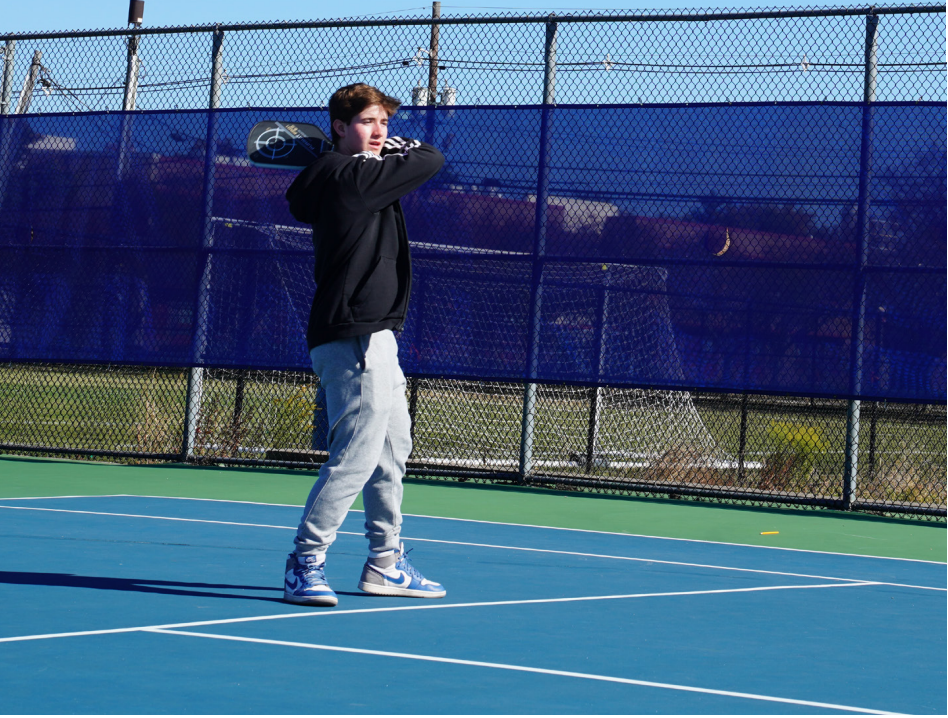As a professional pickleball player sponsored by Selkirk Pickleball, the leading pickleball gear company, Dylan Unkert ’28 stands out from the crowd of talented PHS athletes. He has played pickleball recreationally for around six years, but has started competing this past year. He currently plays in individual, team, and mixed events in tournaments across the nation, although he mainly competes in doubles. In the past year of play, he won medals at almost every tournament he participated in, including a division in the U.S. Open, and hopes to continue his winning streak at nationals.
How did you first get into playing pickleball? Why did you choose this sport?
[My grandma and I] went down to Florida one year for Christmas and I was really hesitant to play because I didn’t really know anybody. She thought [pickleball] was a good, inclusive sport that all ages can play, so she brought us down and I just fell in love with it. Before, I would only play once a year but then I found more courts [nearby] and we were able to play once a week. Now I’ve been playing almost every day.
How was your transition as a player from middle school to high school?
I play on a team outside of school. It can be hard managing school and [playing] because the practices are four to five hours each day, on top of competing ... I definitely think that the jump from middle school to high school has been more challenging.
What makes playing doubles special for you? How do you build the necessary chemistry with your teammates?
I’ve been playing with some of my partners for a year. Just knowing each other and not having to communicate because I know [they will] be there ... I think that really helps. I think even if you’re playing two people that are better than you, it’s your chemistry that really sets you apart from the others. It’s really [about] how well you can communicate [and] how well you can work together and uplift each other.
What misconceptions about pickleball do you frequently encounter?
That pickleball is an old people’s sport. If you play at a lower level, you’re obviously not moving as much. At the pro level, especially singles, there’s studies that show that [pickleball is] harder on your body than tennis because there’s more of a jolting movement than just side to side ... you need to have hand-eye coordination and a [solid] mentality.
What are the biggest challenges you have faced as a pickleball player, and how have you overcome them?
At least in competitions, I have been one of the youngest people — everyone else is in their twenties, thirties, even fifties. I just try to maintain knowing that I’m a kid, not getting too crazy on the court because [my opponents] are a lot older than me. Being so young ... it can give you opportunities, but other times it can be a hindrance.
What was your most memorable moment during a match?
I was playing singles in the pit and during my final match on game point, I ended up getting hurt — I pulled my hamstring. Not knowing that I pulled my hamstring, I kept on going and I won [the match] with one leg only.
Can you describe your trip to the U.S. Open?
It was overwhelming at first because there were so many people, especially good people. It was a national qualifier tournament — if I won it, I would be able to go to Arizona and compete in nationals. I went undefeated [while injured], so I’m going to nationals in a few weeks!
What do you think your next steps are for pickleball in the coming years?
So the APP (Association of Pickleball Players), which is one of pickleball’s main foundations, is starting a boarding school for the best junior pickleball players. Thankfully, I was invited to be there. Now I just have to decide if I want to move to Florida or not!
